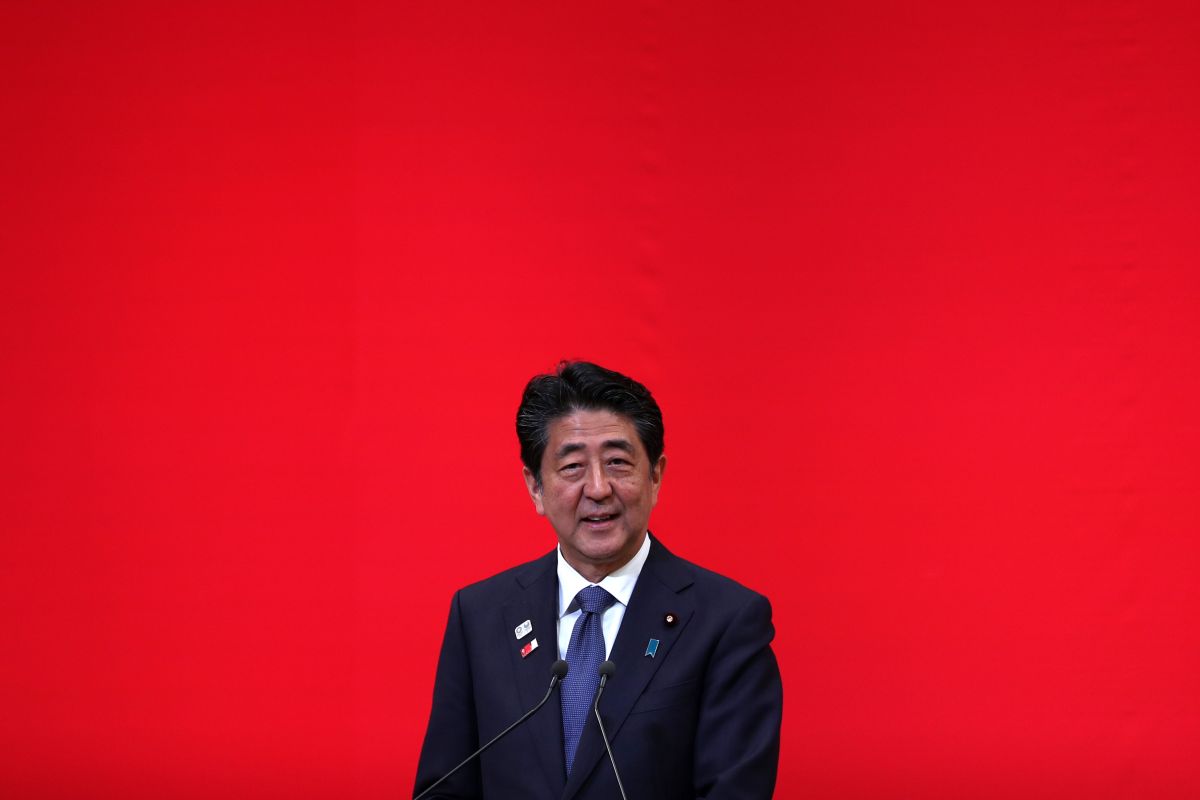Asian Wrestling Oly Qualifiers: Aman Sehrawat falls at last hurdle as India falters in freestyle
Jaideep, in men's 74kg, was eliminated in the quarterfinals while Sumit too lost at the same stage in the men's 125kg division.
Mr Abe intends to hold a national referendum on constitutional revision by September 2021, when his tenure as LDP president expires.

Japan's Prime Minister Shinzo Abe delivers a speech during a ceremony marking one year before the start of the Tokyo 2020 Olympic Games in Tokyo on July 24, 2019. Tokyo entered the final leg of its marathon Olympic preparations, marking a year until the 2020 Games open with officials promising a high-tech but eco-friendly event. (Behrouz MEHRI / AFP)
There are red herrings across the trail of Japan’s Prime Minister, Shinzo Abe, as he strives to amend the Constitution ~ a consummation that he devoutly wishes for. Though the ruling coaltion commands a majority in both Houses of the Diet (parliament), as underscored by the recent election to the Upper House, the plan may yet hit the reefs as the ruling coalition, Nippon Ishin no Kai and Independents ~ all favourable to amending the Constitution ~ have failed in the election to reach two-thirds, or 164, of the total seats of the Upper House, indeed the figure that is required to initiate the amendment.
The fractured polity makes it imperative for Mr Abe to obtain the cooperation of Opposition parties. As regards launching the process in the Diet and a referendum on constitutional revision, Mr Abe said on television programmes after the results were declared that “Although there is no particular deadline, I really want to somehow realize them during my term.”
It is the deficit in terms of numbers that is now of uppermost concern. The consummation may not be swift not least because the Prime Minister, for all the electoral support, will have to suitably convince his opponents in the legislature about the need to amend the Constitution. The ruling coalition will take all possible measures to posit the administration on a stable foundation, as the coalition holds a majority in both chambers in the Diet.
Advertisement
Mr Abe intends to hold a national referendum on constitutional revision by September 2021, when his tenure as LDP president expires. Several commissions on constitutional reforms are now in place and it is important for every party to present its own views on this terribly important issue. The discussions must of necessity be constructive and lead to a national consensus. The Democratic Party for the People has expressed its willingness to discuss the Constitution.
At the Diet’s extraordinary session, the LDP is hoping to reach an agreement with a large segment of lawmakers. Beyond the Constitution, Japan’s foreign policy will be on test given the two constructs ~ first, North Korea’s missile tests and their impact on Japan’s security, and second, the power-games in the Strait of Hormuz.
The immediate task for the administration is to deal with a coalition of the willing to ensure the safety of the Strait. “We are listening to what the US side says about the plan,” Abe said in a television programme. “First of all, I want to have a clear understanding of it.” Towards that end, Shotaro Yachi, secretary-general of the National Security Secretariat, held talks with America’s national security adviser, John Bolton, at the Prime Minister’s Office soon after the electoral outcome was announced.
Both countries have confirmed that they will cooperate closely. Both in terms of the Constitution and foreign policy, Mr Abe’s finesse will be on test. He is acutely aware that the lack of two-third majority in the Upper House of the Diet could turn out to be a prickly issue.
Advertisement